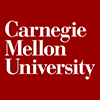Adjunct Instructor: Urban and Regional Economic Development
 Carnegie Mellon University Carnegie Mellon University | |
 United States, Pennsylvania, Pittsburgh | |
 5000 Forbes Avenue (Show on map) | |
 Oct 30, 2024 Oct 30, 2024 | |
|
Carnegie Mellon University: Heinz College Location Pittsburgh, PA Open Date Oct 17, 2024 Description The Heinz College of Information Systems and Public Policy at Carnegie Mellon University seeks an adjunct instructor for Urban and Regional Economic Development for students in the Master of Science in Public Policy and Management (MSPPM) program. We invite professionals with deep experience and demonstrated leadership in the field to apply. This course introduces students to the theory and practice of economic development in the United States. An introduction to basic analytic techniques used by both researchers and economic development practitioners will be coupled with a broad overview of the research literature in the fields of urban and regional economics. Emphasis will be placed on the public sector's role in promoting economic development and public policy at the federal, state and local levels that are focused on improving economic conditions for people, places and regions. Recognizing economic development is a broad and complex topic, the minimum goals of this course are to: - Explain economic theories explaining the location of economic activities and the growth or decline of regional economies at the state, metropolitan and local level. - Critique the theories and methods of regional economic development in their application to a region. - Examine a regional and local economy using critical analytical methods like shift share, location quotients, and comparative analysis. - Recommend a regional development strategy based on your theoretical critique and economic analysis. The course is an elective course for students in the MSPPM program, typically in their second year of study. The instructor should assume that the students have some baseline knowledge of statistics, microeconomics, finance, and public policy. The instructor should be a practitioner with direct experience in the field of economic development. Recent experience in teaching is preferred. The course is a full semester (14 week) spring course. Course times could be afternoons (two 80 minute class sessions per week) or evenings (one 170 minute class from 6:30-9:20 PM, inclusive of a break, per week), as preferred. The course design should at minimum include relevant readings (textbook, research papers, news articles, etc.), in-class discussions, and appropriate evaluations of mastery of concepts for grading purposes (homework, quizzes/exams, etc.). Given the focus of Heinz College graduate programs, utilization of data, strategic thinking, and application of leadership skills are highly encouraged to be integrated into the course. About Heinz College The Heinz College of Information Systems and Public Policy is home to two internationally recognized schools: the School of Information Systems and Management and the School of Public Policy and Management. The unique colocation of these two schools sets Heinz College apart to tackle society's most complex problems by teaching our students a firm understanding of policy, technology and analytical foundations, and the management skills to deploy solutions for maximum impact - the intersection of people, policy, and technology to approach complex societal problems. For more information, please visit www.heinz.cmu.edu.
Heinz College adheres to four basic principles of being grounded in real-world problem solving; staying ahead of the curve in innovation; nurturing diversity; and developing compassionate leaders. The College, since its founding in 1968 as the School of Urban and Public Affairs, has had a long history of commitment to diversity, equity, and inclusion, made ever more relevant in today's world of technology-driven social change. Qualifications Master's degree | |

